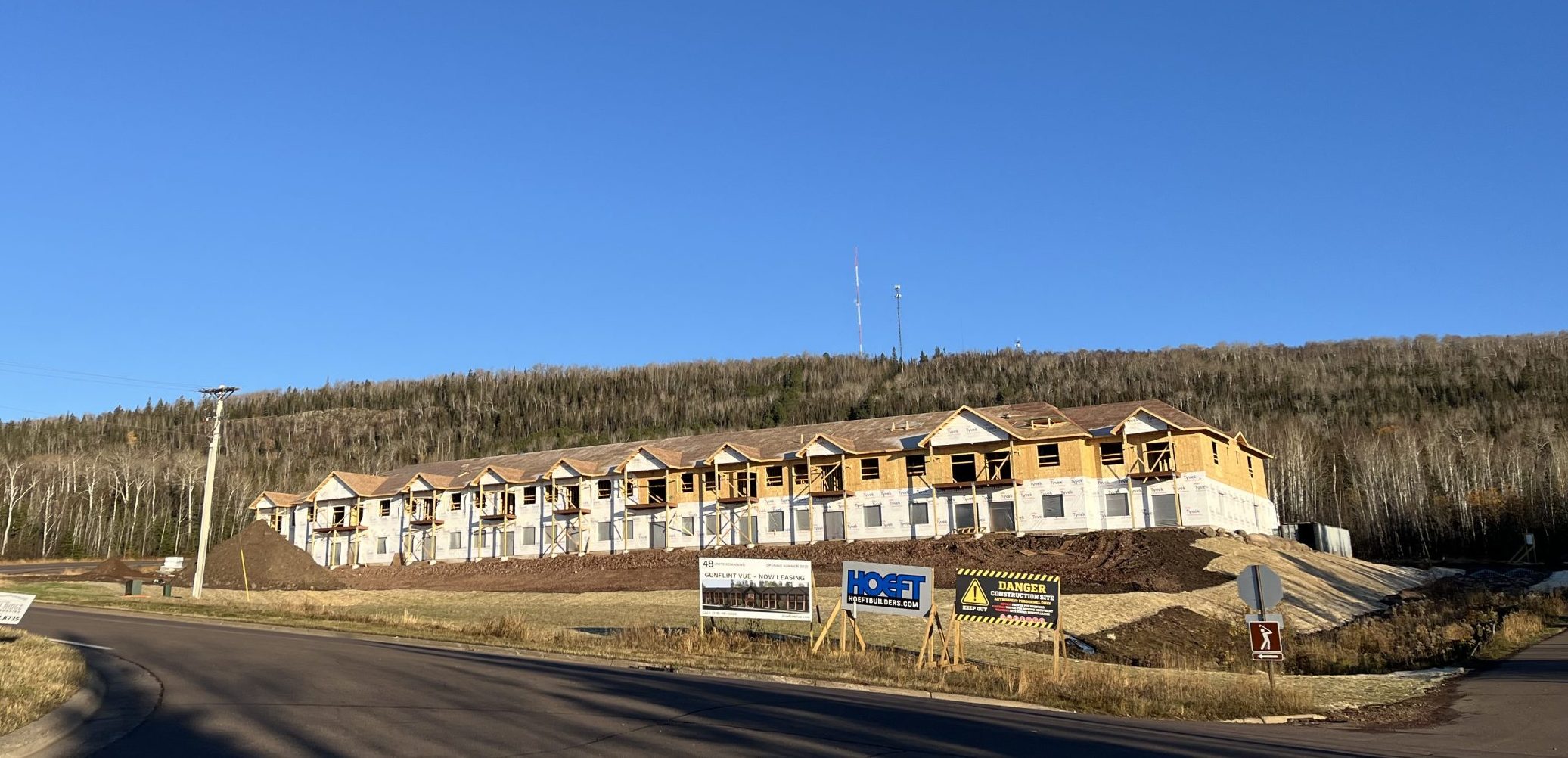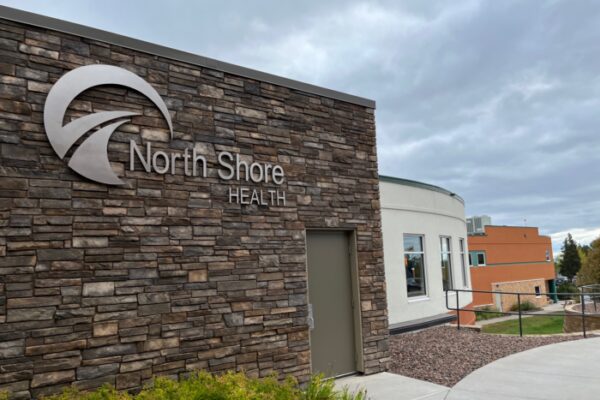HRA director gives updates on multi-family projects planned for Grand Marais
Construction season may be nearing its end in Northern Minnesota, but the local work to address the housing shortage in Cook County is ongoing.
Housing Redevelopment Authority (HRA) Executive Director Jason Hale spoke to WTIP following the group’s October meeting. The Oct. 16 meeting included updates on several projects at various stages of development. The three multi-unit projects were the focus of the updates.
Workforce housing on Highway 61
Earlier this year the Grand Marais City Council expressed interested in supporting a workforce housing project at 1800 W Highway 61. Many know the location as the Tomteboda Hotel site. The HRA was recently awarded a $1.3 million grant from Minnesota Housing to develop the site. Hale told WTIP that the award was a real achievement, since the state received twice as many applications as grants awarded. He added, “We are grateful to Minnesota Housing. And we had some high project costs because, Cook County, and still, they were supportive and recommended the board approve our project.”
Hale said that with that grant money confirmed, the HRA can move ahead with planning, including nailing down exactly what types of units might be included. He said that within the housing industry, “workforce housing” typically refers to units targeting households that earn 80 to 120% of the local Annual Median Income (AMI). Hale said that the plan for this project would focus on a slightly different group of residents. He said, “The goal is to include rents from 60 to 100%,” adding that in Cook County, that is where the greatest housing needs are.
The Heights
Tax abatement was officially approved for The Heights from both the county board and the Grand Marais City Council. Hale said that the decision was important, since it was the first time that the municipalities have approved tax abatement for a housing project. He said, “I just want to celebrate that the community is being pushed to try new things, and this sort of support and being willing to try these new tools.”
Hale said that construction on The Heights will likely start in the spring. He said that the modular units that will comprise the building will allow some of the construction to take place off site. When dirt work is completed, those units will be transported to Grand Marais, and the building will be assembled relatively quickly. In a previous interview with WTIP, Hale estimated that the building may be open for occupancy as early as June of 2025.
Gunflint Vue
While much of the news shared at the Oct. 16 meeting was positive, Hale pointed to the Gunflint Vue update as an example of the “ups and downs” in housing. The project was awarded $500,000 in 2020 from the Iron Range Resources and Rehabilitation Board (IRRR). At the time, the funding went through the Economic Development Authority (EDA), and was awarded through an IRRR program that has since been discontinued.
Hale explained that due to a misunderstanding in the terms of the grant agreement, the HRA and developers have opted not to use the awarded funds. He said that the other IRRR grants that the HRA has been awarded on behalf of other project developers were limited in scope to only cover the cost of infrastructure work, like blasting and dirt work. This means that requirements, like paying prevailing wage, applied specifically to those elements of the construction.
The Gunflint Vue grant, awarded by an old IRRR program, defined the project more broadly, which would mean that those requirements would apply to the entire project. Hale said that at this stage in the construction, the developers decided against adjusting the contracts for the entire project to reflect the grant requirements. He said, “So they would have had to go back and try to get all of the subs and the general contractor to redo all the contracts basically, and then rebid things according to prevailing wage. And it just didn’t make sense from administrative position and from a financial position.”
Hale said that the HRA had not yet requested any of the awarded funds from the IRRR for Gunflint Vue, which made the choice not to use the grant easier administratively. As for the hole left by turning down the $500,000, Hale said that the HRA and developer have been able to fill it. He said that the HRA was able to redirect funds that the group had earmarked for the Bjorkberg project, which was rejected by the City of Grand Marais in August. Between the Bjorkberg funds and some money left in the HRA budget, the organization is able to offer the developer $200,000. The remaining $300,000 will be made up by additional loans taken out by the developer. Hale said that despite the changes in financing, the developer will maintain the agreement with the HRA to include income restricted units in the building.
Looking forward
There are several other projects that have received IRRR funding through the HRA. Hale said that the experience with Gunflint Vue has lead to additional reviews of all of those contracts. He said, however, that because the other projects were awarded grants through the IRRR housing program, they should not run into the same problems that Gunflint Vue did. The HRA is already preparing for the next round of IRRR grant applications, which will be reviewed in 2025. Hale said that he is working with the developers of the Norra Skogen project, which includes plans for at least 10 single family homes on the East side of Grand Marais.
Hale offered additional updates from the HRA. He said that a second project from the Envelope and Energy pilot program has been completed. Two additional projects are waiting on contractor bids. Hale said, “Once we get those, we’re pretty optimistic that we can show the successes of those projects, but we’re excited to be able to go apply for some additional funds to help those types of projects.”
There have also been some changes to the HRA board. After Mary Somnis left the HRA board, Bill Gabler stepped into her previous role as board chair, and Chris O’Brien will now serve as vice chair. The board is also recommending that the county commissioners approve the appointment of a recent applicant, which would mean a fully staffed HRA board.
WTIP’s Kirsten Wisniewski spoke with Jason Hale about the most recent HRA updates. Audio of that interview is below.














